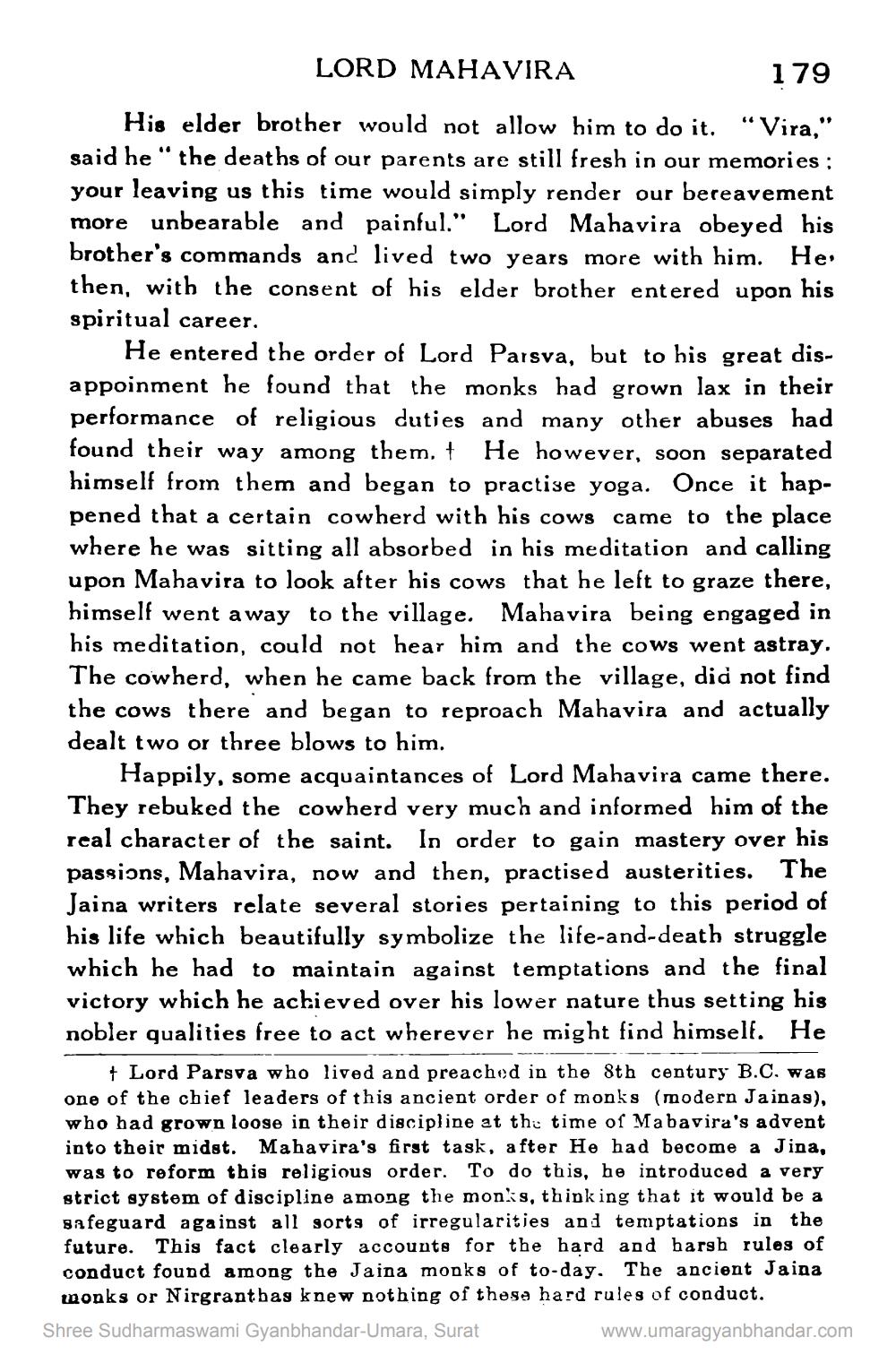________________
LORD MAHAVIRA
179 His elder brother would not allow him to do it. “Vira," said he "the deaths of our parents are still fresh in our memories ; your leaving us this time would simply render our bereavement more unbearable and painful." Lord Mahavira obeyed his brother's commands and lived two years more with him. He: then, with the consent of his elder brother entered upon his spiritual career.
He entered the order of Lord Parsva, but to his great disappoinment he found that the monks had grown lax in their performance of religious duties and many other abuses had found their way among them, + He however, soon separated himself from them and began to practise yoga. Once it happened that a certain cowherd with his cows came to the place where he was sitting all absorbed in his meditation and calling upon Mahavira to look after his cows that he left to graze there, himself went a way to the village. Mahavira being engaged in his meditation, could not hear him and the cows went astray. The cowherd, when he came back from the village, did not find the cows there and began to reproach Mahavira and actually dealt two or three blows to him.
Happily, some acquaintances of Lord Mahavira came there. They rebuked the cowherd very much and informed him of the real character of the saint. In order to gain mastery over his passions, Mahavira, now and then, practised austerities. The Jaina writers relate several stories pertaining to this period of his life which beautifully symbolize the life-and-death struggle which he had to maintain against temptations and the final victory which he achieved over his lower nature thus setting his nobler qualities free to act wherever he might find himself. He
+ Lord Parsva who lived and preached in the 8th century B.C. was one of the chief leaders of this ancient order of monks (modern Jainas), who had grown loose in their discipline at the time of Mabavira's advent into their midst. Mahavira's first task, after He had become a Jina, was to reform this religious order. To do this, he introduced a very strict system of discipline among the monks, thinking that it would be a safeguard against all sorts of irregularities and temptations in the future. This fact clearly accounts for the hard and harsh rules of conduct found among the Jaina monks of to-day. The ancient Jaina monks or Nirgrantbas knew nothing of these hard rules of conduct. Shree Sudharmaswami Gyanbhandar-Umara, Surat
www.umaragyanbhandar.com




